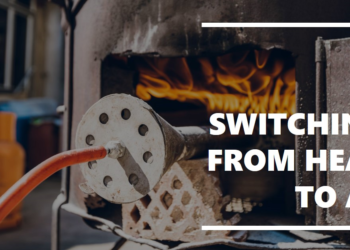Learn about What Companies Are Using ICF Technology. Discover top companies using ICF technology for energy-efficient, durable construction. Learn how ICF transforms modern building practices with sustainability and innovation.
Introduction to ICF Technology
ICF (Insulated Concrete Forms) technology is one of the modern construction techniques in which insulation can be very well integrated with the building structure. ICF buildings have been constructed as hollow foam blocks or panels used as permanent forms for the poured concrete. The integrated solution to energy efficiency, noise reduction, and enhanced durability has made them a favorite for residential, commercial, and industrial buildings alike.
What is ICF Technology?
ICF (Insulated Concrete Form) technology is a new construction process using hollow lightweight blocks or panels of polystyrene or similar materials that are stacked, reinforced, and filled with concrete for a fantastic sound-insulated structure. It provides excellent insulation in terms of temperature and sound, energy efficiency, and resistance to extreme weather, fire, and pests.

IOW practically springs into being wherever there’s a residence, shop, or industry-fest; environmental as well as energy costs have put itself among all others in the commercial race. “ICF homes are faster to build because they are sustainable with modern construction needs, meeting green building methods for energy and time-efficient construction,” it explains.
Key Benefits of ICF Technology
1. Energy Efficiency
ICF technology is the best insulating mode and radically reduces energy consumption for both heating and cooling. It lowers the temperature fluctuation inside buildings allowing people to enjoy constant comfort and see savings on their utility bills: the best choice for energy-minded builders and homeowners.
2. Durability
ICF buildings are extremely strong due to their reinforced concrete core, which makes them resistant to the weather, impacts, and even aging. Durability refers to such buildings not needing maintenance and lasting forever; hence, it is a perfect solution for both residential and commercial buildings.
3. Fire Resistance
ICF walls are highly fire resistant giving safety and peace of mind. The combination of the concrete core and noncombustible materials will substantially reduce the possibility of fire spreading while satisfying very strict advantages of safety standards.
4. Flexibility
ICF technology is versatile to many different designs from curves to complex layouts to high-rise buildings. Its flexibility balances an architect’s artistic imagination with structural integrity and energy efficiency.
5. Compatibility
The full integration of ICF with such other features as plumbing, electrical, and HVAC systems found in construction provides consistent lean-installation processes while also reducing construction time, and enabling timely project delivery.
6. Sustainability
ICF Technology keeps in step with sustainable construction within the domains of reduced energy usage, solid waste minimization, and recyclables. ICF’s long-range performance is wholly consistent with green building practices and environmental conservation as well as energy-efficient construction of structures.
What Companies Are Using ICF Technology?
1. Fox Blocks
Fox Blocks creates excellent construction systems that adhere to the highest ICF standards for the energy-efficient residential, commercial, and industrial construction markets. Durable and green products are designed to make the process easy and reduce installation time.
Fox Blocks also talks about environmental benefits as they have made acquisition solutions that help save energy and improve building performance. Their systems are mostly known within North America.
2. Nudura
Nudura is a leading ICF provider that specializes in designing intelligent building solutions. Their systems support sustainable construction, providing maximum energy efficiency and high durability.
Nudura products relate to versatility in applications such as residential, commercial, and institutional construction. They manufacture and design long-lasting structures meant to meet modern standards of green buildings.
3. BuildBlock Building Systems
BuildBlock provides a full range of ICF structural solutions: walls, roof, and floor systems. It boosts energy efficiency and speed in construction. The engineered strength and simplicity of products make them favorites for home and commercial use.
Most of all, BuildBlock is committed to sustainability and offers an extensive range of documentation to assist all contractors in achieving reliable and durable structures.
4. Quad-Lock Building Systems
Quad-Lock entails new ICF technology for walls, roofs, and foundations. These modular designs simplify construction while ensuring thermal efficiency and strength. Quad-lock systems are typically used in houses, schools, and industrial projects. They are the energy-conscious builder’s best choice for eco-friendly solutions, as they tend to focus greatly on green building.

5. Amvic Building System
Amvic focuses on products that specialize in high-performance ICFs for energy-efficient walls and floors. With high insulation properties, Amvic systems are widely used in areas with extreme climates.
The company’s design promotes easy installation and concerns for sustainable products that make their options a viable choice for both residential and commercial builders who know much better about performance over the long run.
6. Logix Insulated Concrete Forms
Logix’s multifunctional, resilient ICF systems are intended for residential, commercial, and institutional builds. Their solutions will improve energy efficiency and soundproofing levels, as well as count green building practices as among their most important qualities.
Innovative design and reliable products make Logix the best-known market leader in the construction of the needs of modern, eco-friendly projects.
7. ICF Supply Co.
ICF Supply Co is the destination for all ICF builders and their compatible accessories. The ICF systems are built for easy installation and high insulation, energy efficiency, and affordability. Making construction easier is what exactly ICF Supply Co stands for the solution provider to residential and commercial sustainable projects.
How Does ICF Technology Work?
ICF construction primarily involves putting together interlocking blocks or panels that come up with the desired wall structure. Forms are very light and very easy to handle, making installation much easier. Once installed, forms are provided with structural support using reinforced steel (rebar). Finally, hollow forms are filled with concrete, creating a solid, reinforced wall. The insulating forms remain in place, providing continuous thermal insulation and soundproofing.
FAQs
Are homebuilders using ICF technology?
There are many homebuilders using ICF for its benefits of insulation and structure. Some companies such as Fox Blocks and Amvic Systems focus on residential builders looking to construct energy-efficient and sound-control homes.
Do commercial projects use ICF technology?
Definitely. Companies such as IntegraSpec and Logix ICF provide constructive solutions applicable to offices, schools, hospitals, and industrial facilities. These are well-designed to converge strength and energy efficiency.
Are global companies adopting ICF technology?
Definitely! International companies like BASF and Polycrete already include ICF in their various projects all over the globe. Their main focuses are green and indeed cost-effective construction technologies.
What industries benefit from ICF technology?
Construction industries, like the healthcare, education, and hospitality sectors, use ICF for insulation, durability, and acoustic control, and the top construction companies work according to the requirements of these sectors.
Conclusion
ICF technology has all the ingredients for making real advancements in modern construction with energy savings, durability, and sustainability. The innovation and scope it provides make it a great choice for new modern projects. Even though ICF may be established at a comparatively higher price initially, the long-term zeitsparen benefits, such as reduced energy bills and lower maintenance costs, make this construction an investment in the future.






